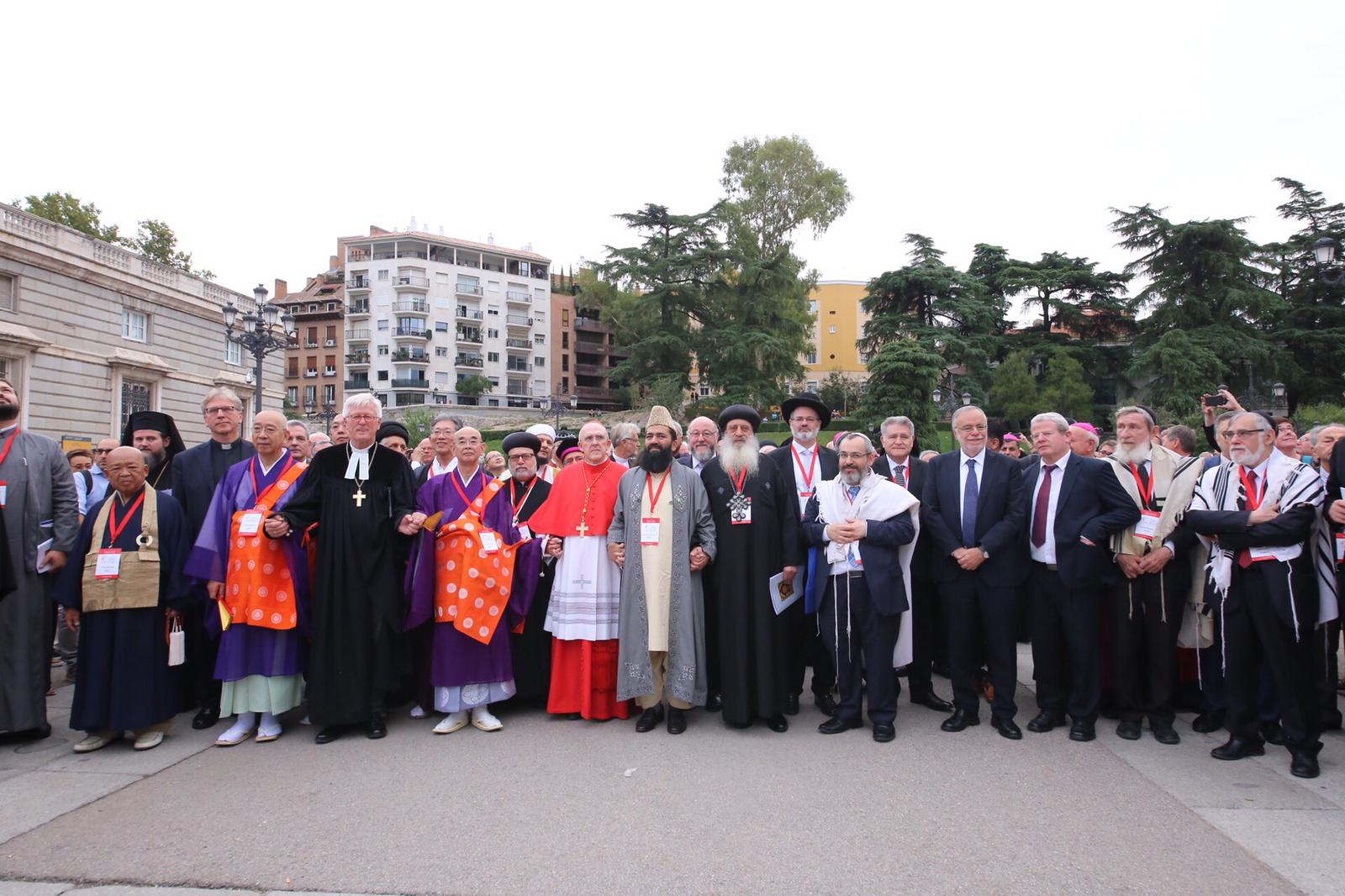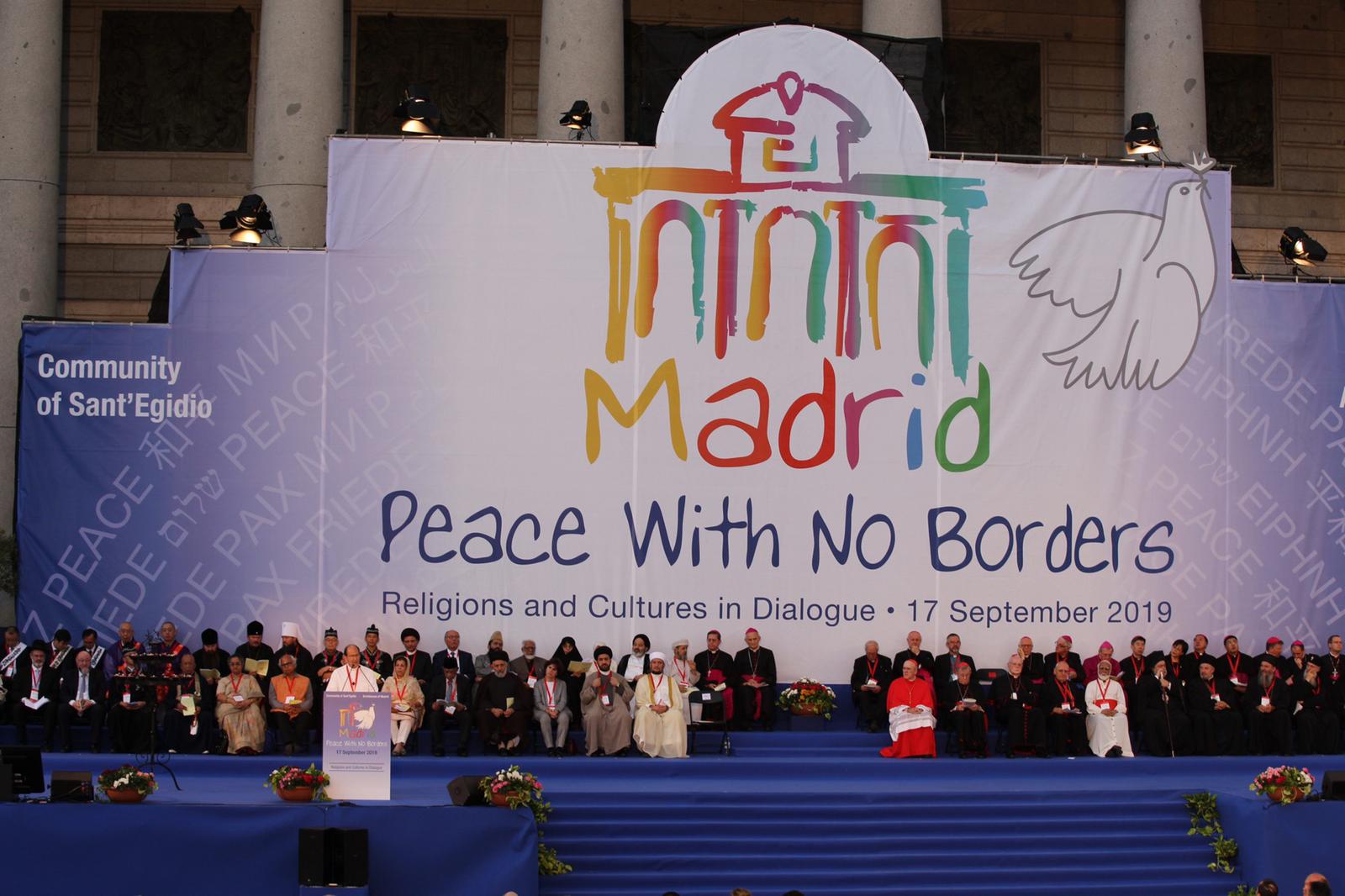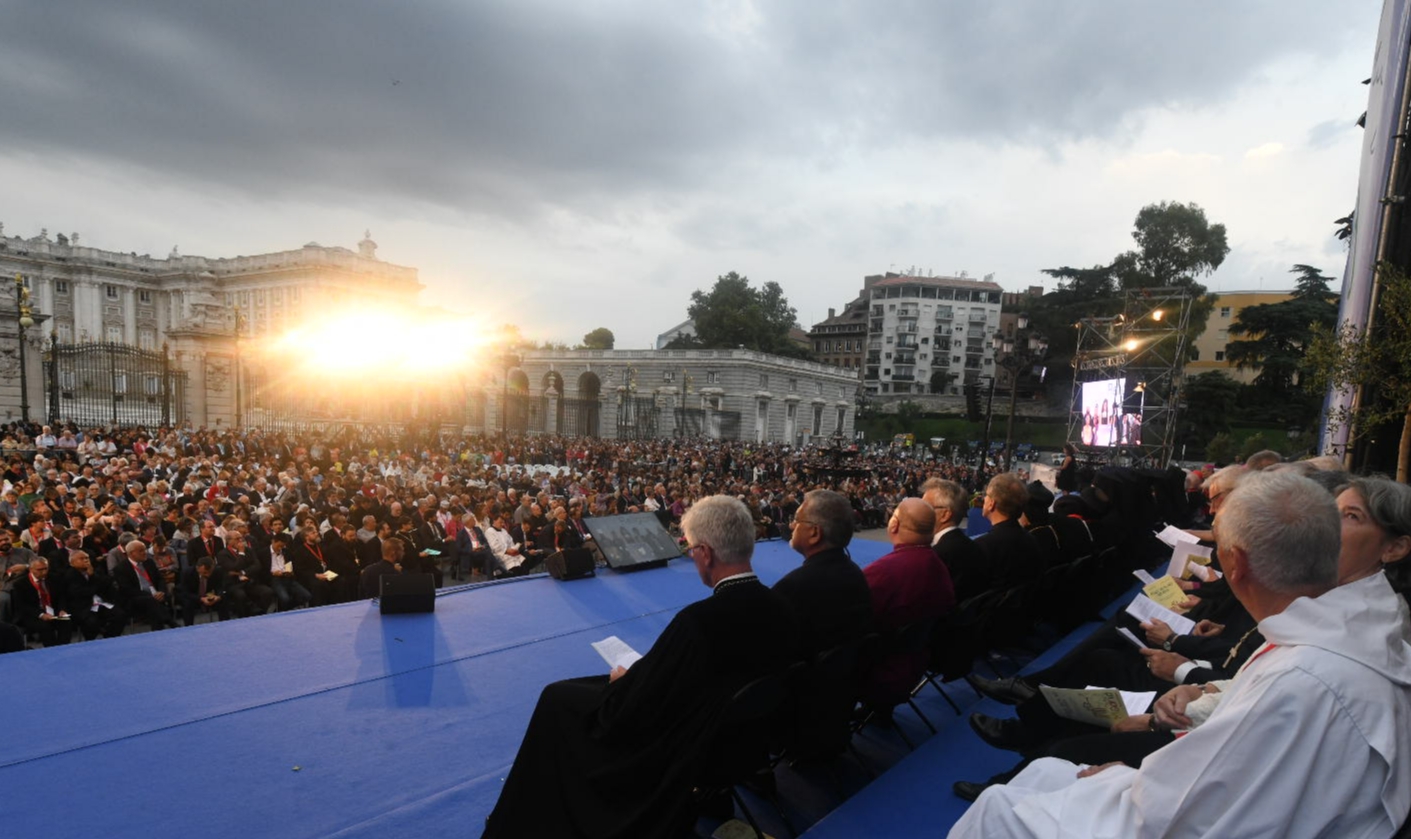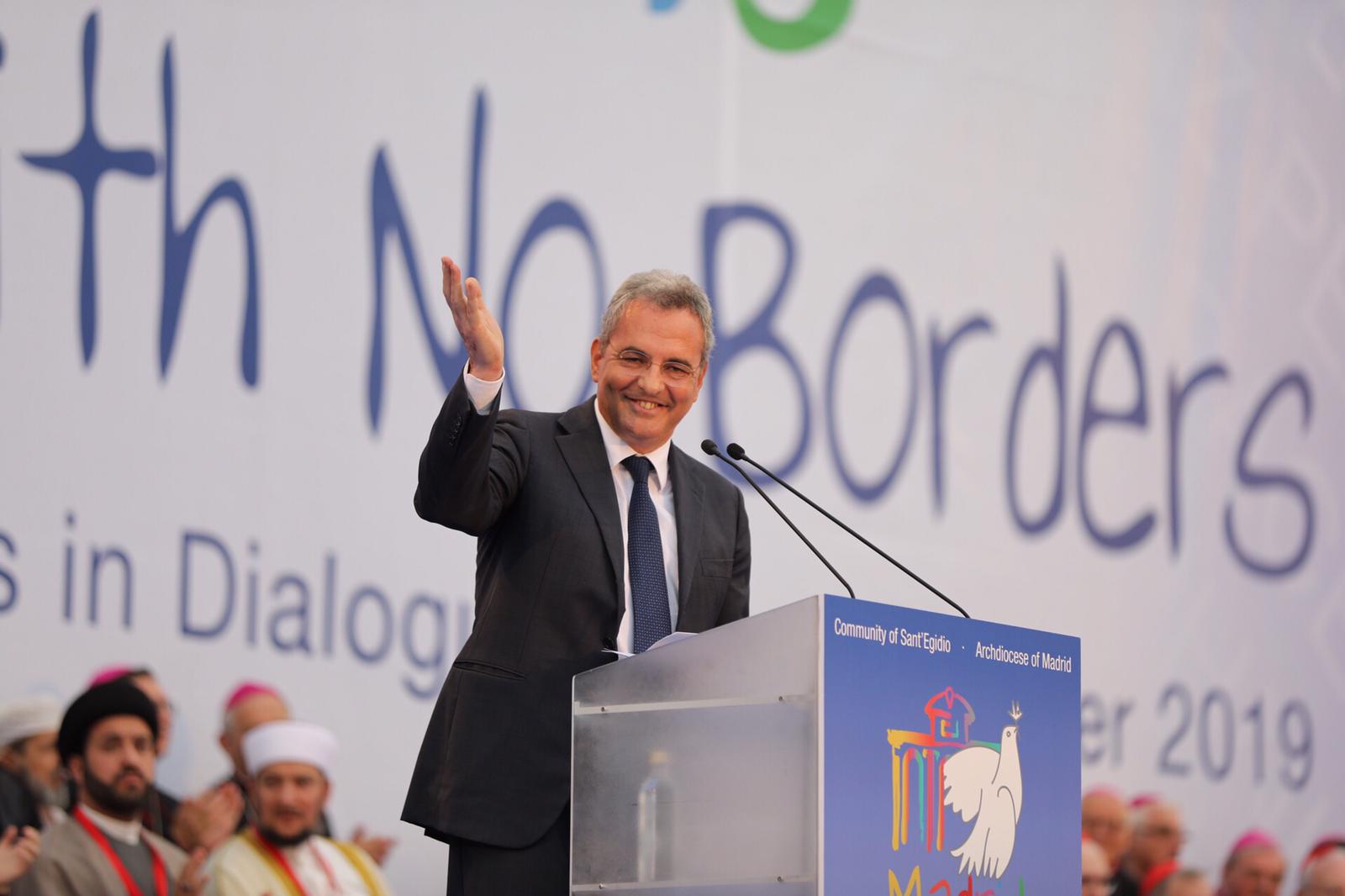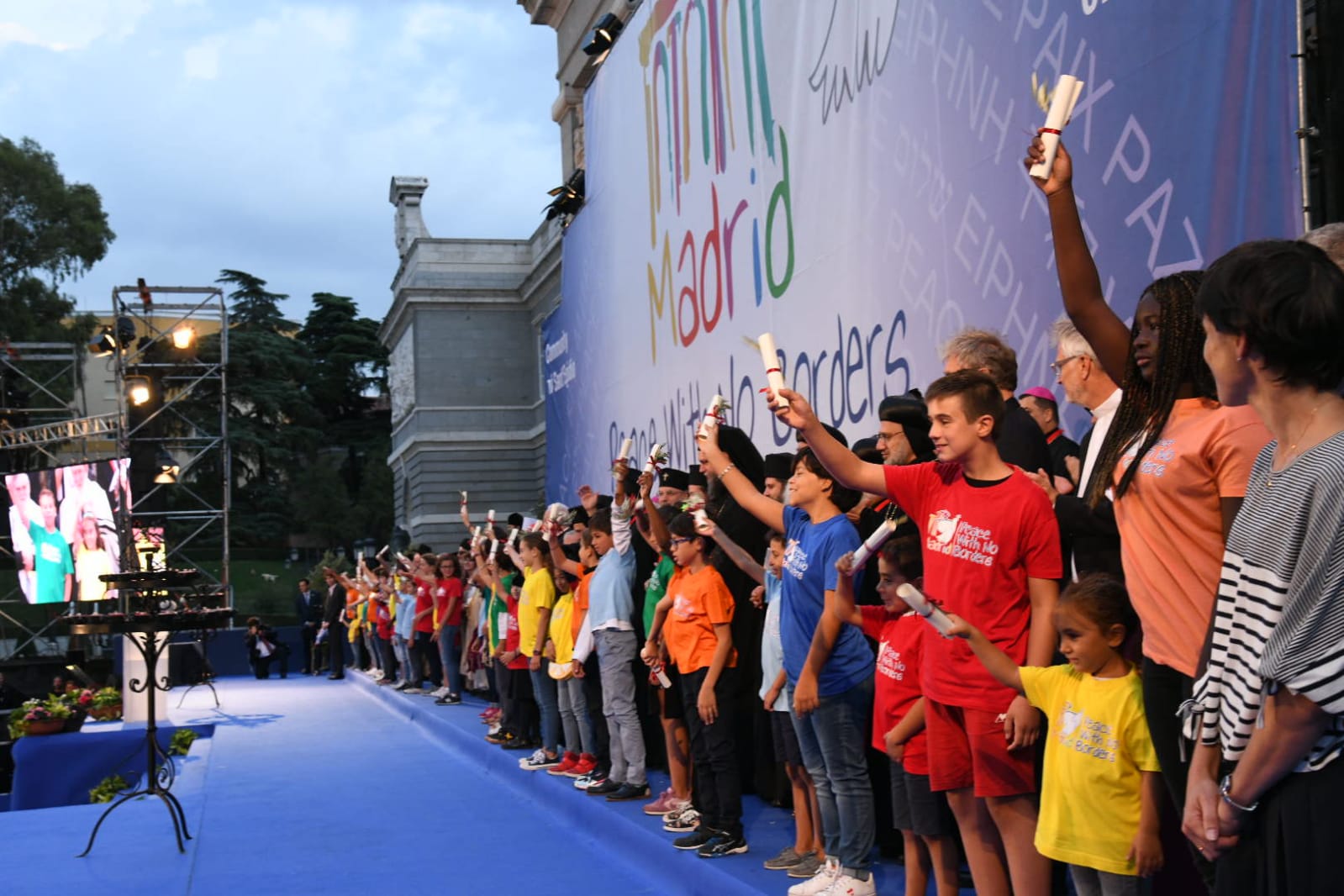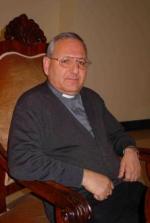
First, I would like to express my heartfelt thanks to Sant’Egidio, for their support, concern and for showing solidarity in promoting dialogue to establish peace and harmonious co-existence among people.
When we talk about dialogue we should aim at consolidating the law of unity and respecting the rituals of different religions, cultures and components of the society. We must understand the society in which we live, to avoid religious, ethnic extremism - terrorism and to focus, instead, on life, peace, development, dissemination of a culture of respect, and safeguarding the environment.
Generally, people are different in nature, culture, education, religion, and gender. This is the will of God, who created us different and gifted us with diversity that adds richness to the society. Hence, we should admit and respect such reality, knowing that our view and judgment is relatively limited as differences in visions and ideas are very natural and must be acceptable.
Since humankind is a “relationship” as he / she was created for the sake of others, the best way to promote relations is to be open, simple and modest to initiate dialogue, with a special emphasis on the importance of friendship, trust and mutual respect.
The word dialogue in Semitic languages is derived from Hoor, Hwara, which means “white”, i.e. dragging the matter to whiteness by uncovering the hidden face of the truth and in foreign languages, dialogue means a conversation between 2 persons to reaching an agreeable “settlement”. Having said that, dialogue is a project and an act of march “together” seeking to better understand the other side, away from courtesy and lies (double-faced). Such meeting has to be at the level of the “opponent’s” way of thinking, reality, and the “richness” of his / her being. Otherwise, ignorance may lead to mistakes, loss of confidence and could turn to defence or attack.
Normally, no one owns the “absolute” truth, since each one of us (more or less) knows part of it, based on his / her understanding, knowledge, and expressions. St. Paul says: “But we hold this treasure* in earthen vessels” (2 Corinthians 4: 7).
Yet, dialogue is neither a technical (diplomatic) approach, nor a process of dragging the rug from under the feet of others to gain them on our side. It is fairly a respectful openness to the facts and differences of the opponent. Therefore, it requires listening to others, understand their thoughts, beliefs, difficulties, concerns and questions, without simplifying and compromising, for dialogue teaches us humility.
In definition, dialogue is a common language, which is not merely a mean of expression, but a feeling, brainpower and a civilized channel for solving problems and ending crises. It is above all, a dialogue of life, as we live together, meet in the neighbourhood, or at work, where we get to know each other closely.
Technically, dialogue is also a state of mutual trust and respect that has been patiently “built”, it is an eagerness to understand others’ point of view and know them better. It is a path that requires a stance of openness, rather than working hard “by all means” to convince others that our religion, or our culture is the best. Thus, Muslims are called to learn more about Christianity instead of relying on their own books, and to take into account what Christians say about their faith. Similarly, Christians must also make an effort to learn about Islam from their sources. This sort of “knowledge interchange” will help both parties to dismantle wrong ideas and clarify the fact of faith.
It is, in this spirit that the religious leaders must read the reality with a new perspective to carry out their prophetic role, in dealing with the profound “unprecedented” changes of the contemporary world, including the challenges that have occurred in many sectors of society and have implications on faithful.
Since religions and faith are not isolated from reality of people, it should be addressed to them, especially to young ones, by using an understandable and acceptable vocabulary. For example, verses and Hadiths (traditions) in all religions have their reasons, to treat special cases under certain circumstances that have to be taken into account. Such text should not be taken literally, but rather to understand its’ spirituality and significance when it comes to apply it presently. So, interpretation of religion text in a wrong way, offers a distorted vision of it that may have a negative impact on its’ relevancy and enslave people. Therefore, we must understand religious texts in their proper sense, circumstances and historic and cultural context.
We cannot deny that there are many historical “wounds” between Christians and Muslims, but I believe that we are able to open a new page today for the sake of the present and the future. We must assume our responsibilities through sincere and courageous dialogue, wisdom and vision to remove all the psychological barriers and see in each other a free and responsible person despite differences.
However, freedom of each individual must be respected, as the value of religious ritual comes from practising it freely rather than compulsory. Freedom is foundation of human dignity to live happily and to obey God’s will. In the Gospel Jesus says: "many will come from the east and the west, and will recline with Abraham, Isaac, and Jacob at the banquet in the kingdom of heaven" (Matthew 8: 11). Also, in the Qur'an: "The truth is from your Lord, so whoever wills - let him believe; and whoever wills - let him disbelieve" (Al-Kahf, 29). Another verse from Quran declares that people cannot be forced to believe (Younis, 99).
In conclusion, I believe that the religious “speech” needs an accurate critical “revision” due to the cultural, economic and social changes. While hiding violence - terrorism behind religion needs a quick solution to “cleanse” the world of extremism and religious fanaticism. All religions have to stop promoting provocative language, and must also remove ideas of extremists and terrorists from the curricula of religious education that threaten the security, as it happened in Iraq and other countries.
In due course, it is urgent for the religious leaders to “push” towards a healthy and diverse “administration”, away from generating xenophobia". This requires supporting efforts for “re-writing” a civic, democratic and modern constitution that assures a full citizenship for ALL CITIZENS and separates religion from “the state” to achieve harmonic coexistence. This will take its’ approach from the historical “Document on Human Fraternity for World Peace and Living Together” signed in the UAE between Pope Francis and the Grand Imam of Al-Azhar, Ahmed el-Tayeb, which initiates a new era of humanity in which different people, sects and religions come together, this new “document” will be one of the “landmarks” in the country and around the world”.
